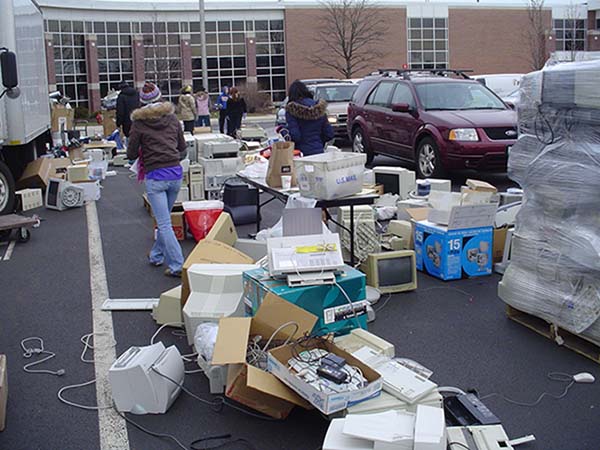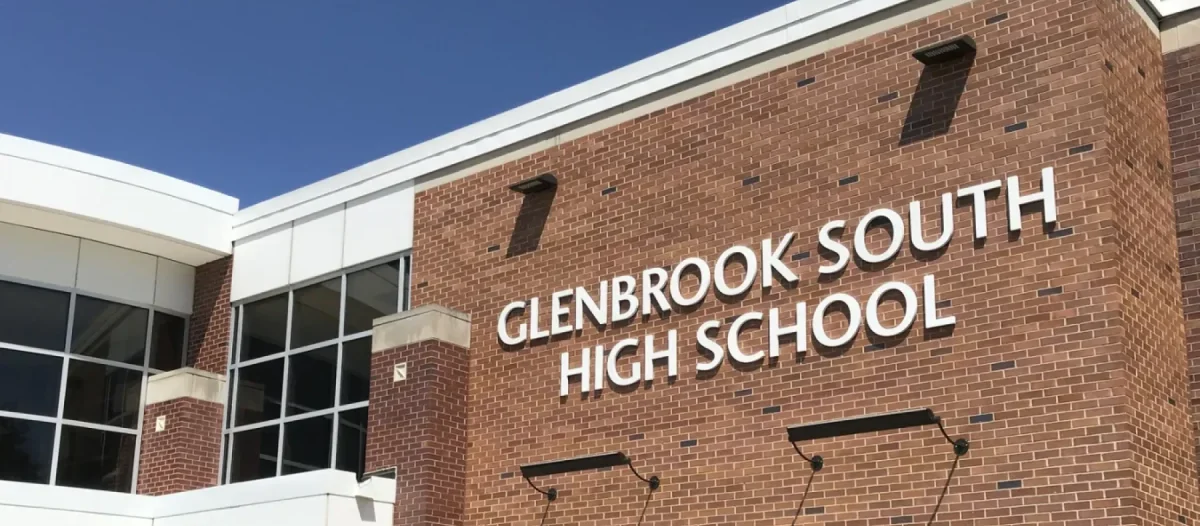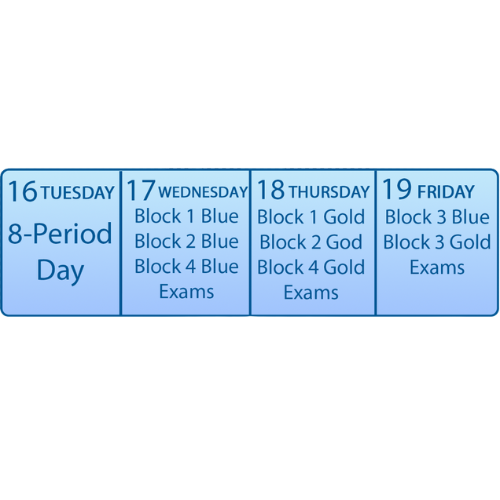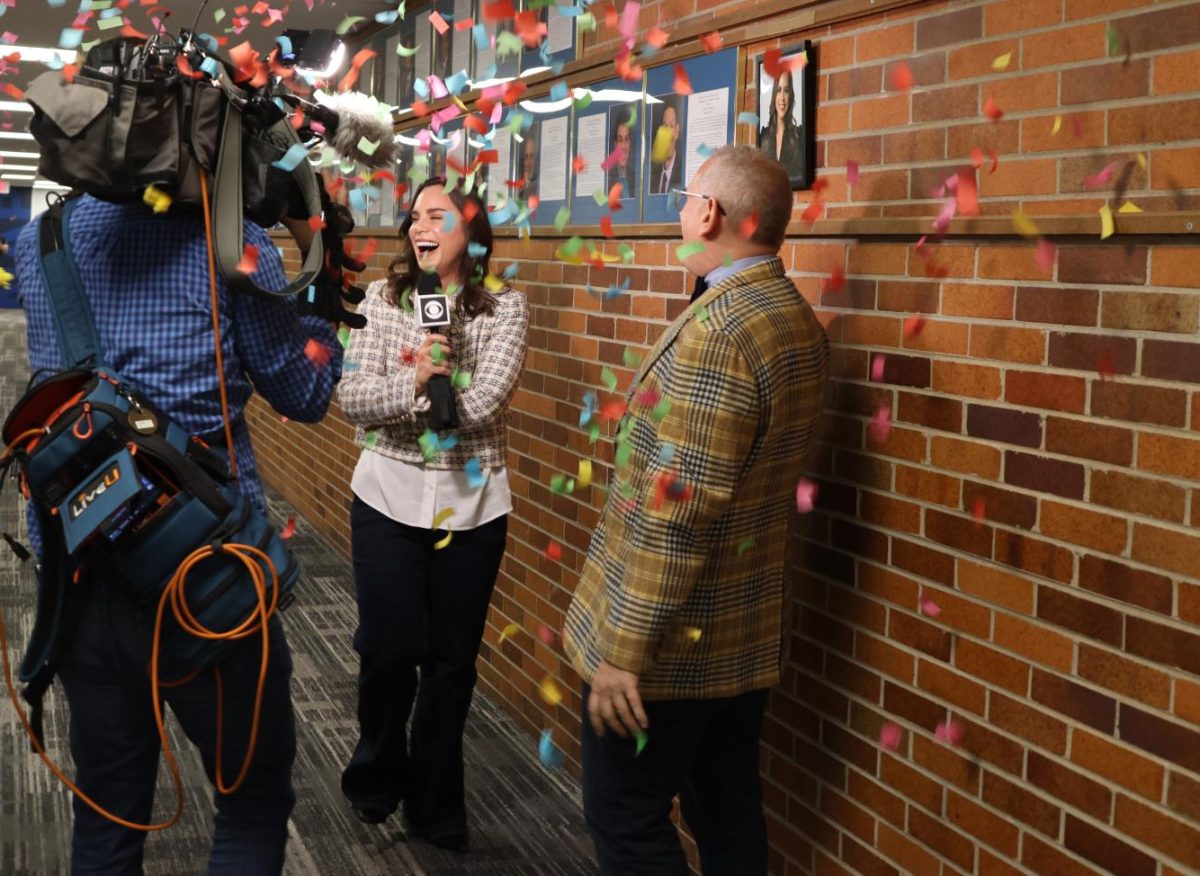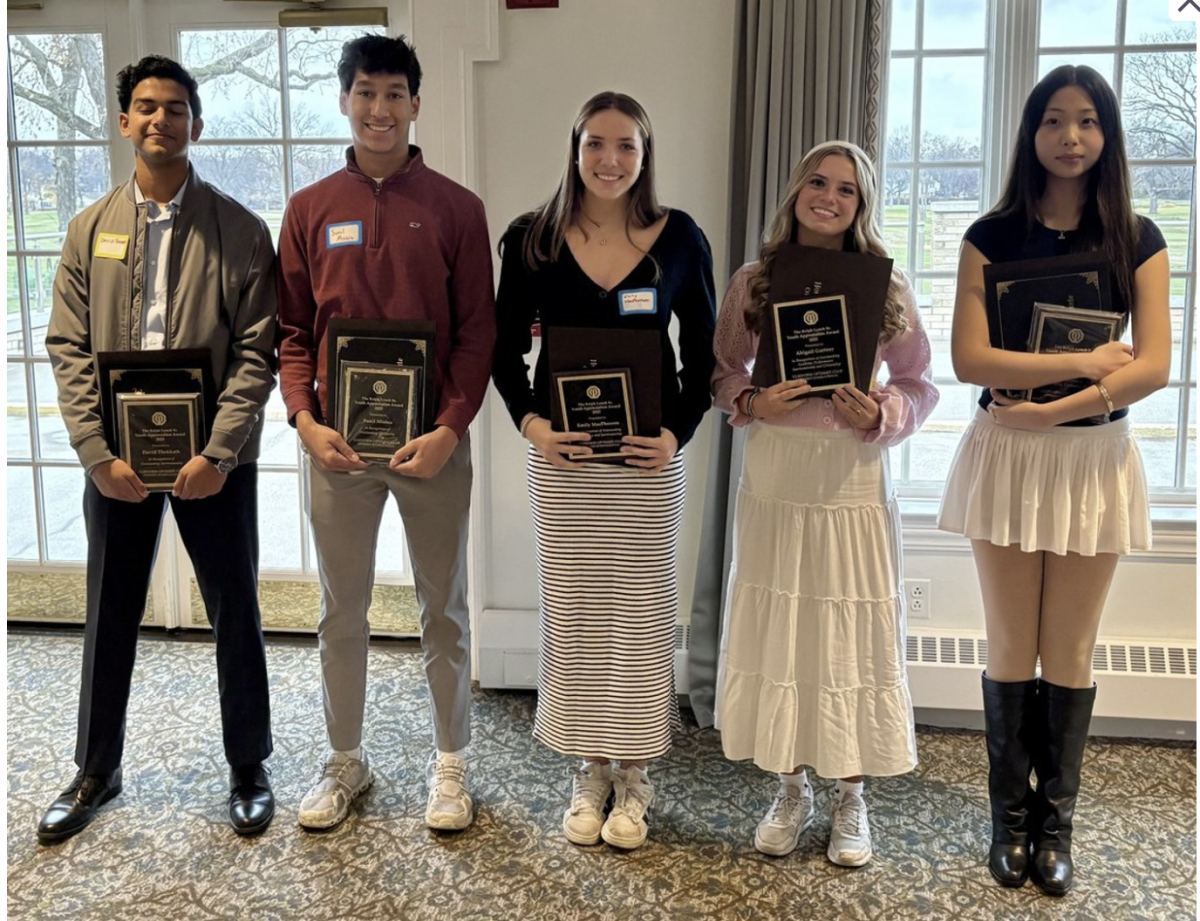South’s Interact Club collected 1.2 tons of computer and medical equipment at their eighth annual drive in collaboration with United Cerebral Palsy of Greater Chicago (UCPGC) on Jan. 10 at GBS.
According to UCPGC employee Greg Grill, the organization’s goal is to gather reusable medical and technology equipment–such as computers, walkers, wheelchairs and other items—which can then be recycled for parts in devices to distribute to those with special needs. Items that cannot be repurposed because of outdated technology or because of age, Grill said, are recycled.
“Once you give us that old, outdated laptop […] we’ll take it and we’ll refurbish it,” Grill said. “We’ll check the memory, wipe the hard-drive, get a new operating system, kind-of adapt it for a child with a disability and then send it out to one of the 102 counties in the state of Illinois. So that’s the goal. We’re not just recycling it to take it out to the hauler. We’re taking it to reuse it or repurpose it in some way.”
According to Interact Sponsor Mark Gallagher, the drive historically has been predominantly student-run. Cars pulled up in front of South’s main entrance, and, according to senior Monica Adamczyk, the Interact officer in charge of the event, students acted fast despite the cold temperatures, making sure that the donors signed release forms for their contributions while passing out complimentary hot chocolate. Adamczyk said her main job this year was to oversee the entire drive, during which she was able to meet donors and see all of the equipment being unloaded.
“It was kind of shocking because I’ve never been involved with [UCPGC] and I’ve never done the drive before,” Adamczyk said. “It was a nice surprise. I saw people come in with a lot of equipment. One person had an entire van full of printers and computers.”
Adamczyk and fellow Interact Officer Colin Burrowes were also in charge of publicity for the event. They notified clubs at Glenbrook North, The Glenview Lantern and both Glenview Rotary Clubs in hopes of increasing the amount of equipment donated.
“Publicity is key in events like this just because it’s not only open to the school, where we can blast information on the intercom, but for the entire community as well,” Adamczyk said.
In addition to aiding families, Gallagher said it is the impact that events like this have on the participating students that is key.
“It’s a success to me when we put students in a place to give back, and they understand that by doing that, they get a high that is indescribable and they’ll want to do it again and again,” Gallagher said. “And to me, that’s what we’re trying to do is build solid citizens, so they’re getting that point, because they’re living it and not reading about it.”
Interact participants aren’t the only ones who benefit from the drive. Donna Dernulc is the mother of 13-year-old Andrew Dernulc, who has been a recipient of medical and technology equipment from various drives. She explains that even families who have medical insurance can benefit from donations.
“This equipment for us is huge because insurance companies—well most people don’t even know this—but they will help you out with one piece of equipment or another but not [necessarily everything you need],” Donna said. “[Andrew is] at the point where he really needs both [a manual and electric wheelchair].”
According to Donna, Andrew has benefited from numerous donations that she may not have been able to provide for her son without the assistance of UCPGC and Interact’s drive.
“We received last week a power chair for him,” Donna said. “It’s really nice to have the power chair, have control for yourself and go where you want to go.”
Before items make it to recipients like the Dernulc family, they are sent to UCPGC warehouses where they are examined to see which parts or whole pieces can be repurposed. Items that are no longer useful are later recycled or handed over to other electronic organizations that may have a different need for them. According to Grill, a person’s ability to assist a child with special needs causes an incredible feeling, both for the families and the participating volunteers.
“If you have a disability and you could never talk before and had access to technology, imagine getting a communication device or a computer [with speech software],” Grill said. “Because of a speaking device, [I’ve heard stories of parents for the first time] hearing their child saying to them, ‘I love you.’”
*The students of the Journalistic Writing calss contributed to this report


